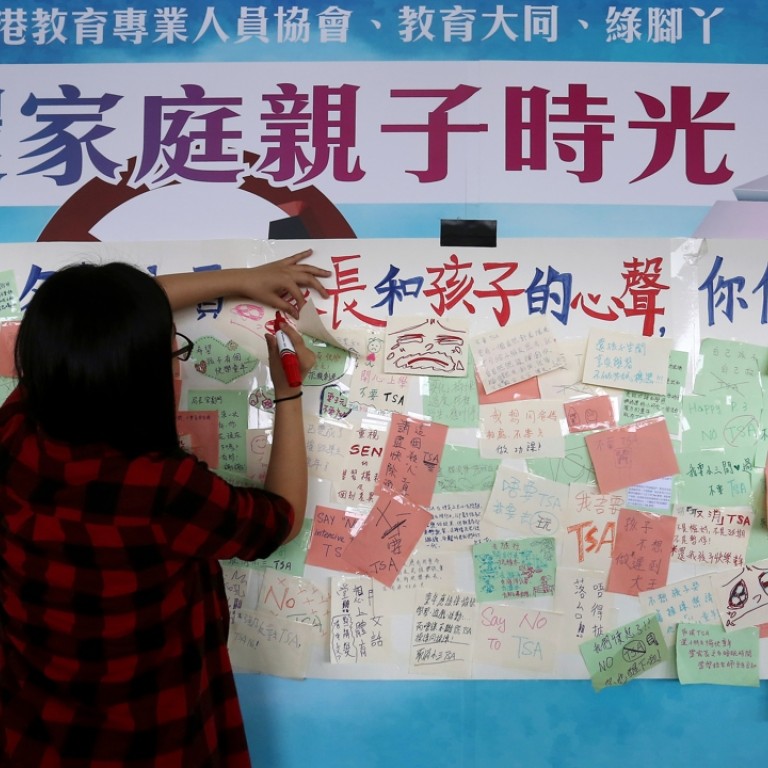
TSA exam sceptics keep pressure on Hong Kong officials to abolish unpopular test
Facebook campaign and concern groups point to entrenched opposition
Opponents of a controversial assessment for primary school pupils remain defiant despite a government pledge on Sunday to make “significant” changes to the exam.
Clement Kam Yee-ning, whose Facebook campaign calling for the abolition of the Territory-wide System Assessment attracted at least 46,000 followers, complained today that education officials did not fully explain what changes would be made.
Kam was reacting to comments yesterday by Undersecretary for Education Kevin Yeung Yun-hung at a special public hearing at the Legislative Council addressing the unpopular exams.
READ MORE: Hong Kong’s TSA exam marks should be simple pass or fail to lower the stakes for pupils, ex-official says
“There is a lack of detail about the adjustment. As a parent I find it hard to accept it,” Kam said during a talk-show on RTHK. He added that he was concerned by Yeung’s admission that he was an “outsider” to the policy and needed expert advice before making a decision.
“Parents are very worried how this outsider can decide whether to accept the experts’ opinion,” Kam said. He repeated his call for scrapping the assessment for primary three pupils.
The convenor of another TSA concern group, Ho Mei-yee, said on the same RTHK programme that she would find it unacceptable if an upcoming Education Bureau review only focused on how to avoid drilling for the test. She said the aim of the assessment is “problematic”.
READ MORE: Parents who spend hours preparing children for Hong Kong TSA exams have ‘herd mentality’, education expert says
“It is unreasonable for the education authorities to push teachers to reach standards,” said Ho in reference to TSA policy objectives. “Doing this ignores the difference among individual students.”
The exams, which were introduced in 2004, were intended to assess the level of knowledge of Chinese, English and mathematics of Primary Three, Primary Six and Form Three students.
The government insisted the exams did not affect the allocation of secondary school places or funding for schools. But critics, including Legco President Jasper Tsang Yok-sing, said the tests put unnecessary pressure on schools to improve their scores.
Parents also said young children were forced by schools to do excessive revision to prepare for the tests.
